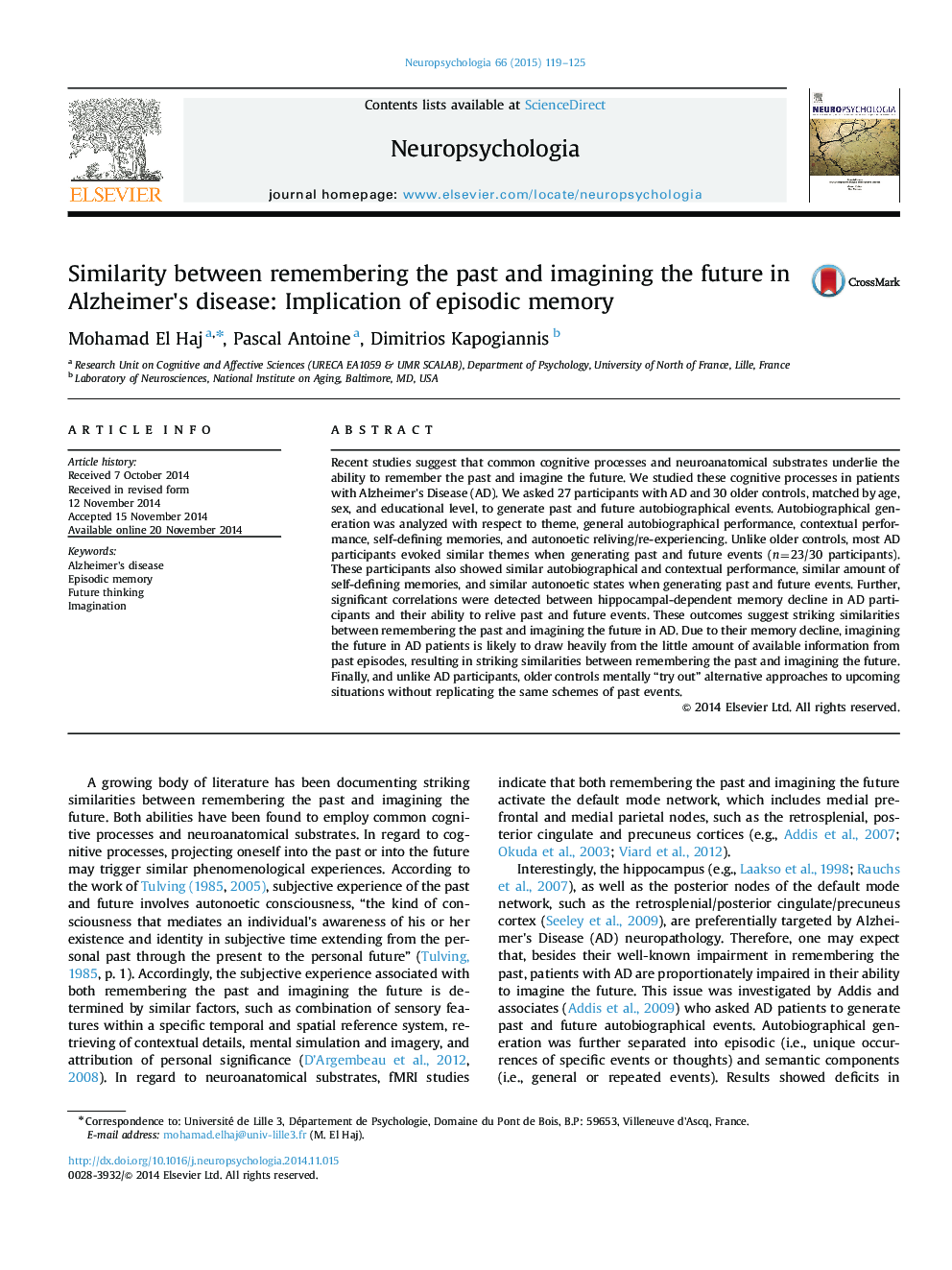| Article ID | Journal | Published Year | Pages | File Type |
|---|---|---|---|---|
| 7320651 | Neuropsychologia | 2015 | 7 Pages |
Abstract
Recent studies suggest that common cognitive processes and neuroanatomical substrates underlie the ability to remember the past and imagine the future. We studied these cognitive processes in patients with Alzheimer's Disease (AD). We asked 27 participants with AD and 30 older controls, matched by age, sex, and educational level, to generate past and future autobiographical events. Autobiographical generation was analyzed with respect to theme, general autobiographical performance, contextual performance, self-defining memories, and autonoetic reliving/re-experiencing. Unlike older controls, most AD participants evoked similar themes when generating past and future events (n=23/30 participants). These participants also showed similar autobiographical and contextual performance, similar amount of self-defining memories, and similar autonoetic states when generating past and future events. Further, significant correlations were detected between hippocampal-dependent memory decline in AD participants and their ability to relive past and future events. These outcomes suggest striking similarities between remembering the past and imagining the future in AD. Due to their memory decline, imagining the future in AD patients is likely to draw heavily from the little amount of available information from past episodes, resulting in striking similarities between remembering the past and imagining the future. Finally, and unlike AD participants, older controls mentally “try out” alternative approaches to upcoming situations without replicating the same schemes of past events.
Related Topics
Life Sciences
Neuroscience
Behavioral Neuroscience
Authors
Mohamad El Haj, Pascal Antoine, Dimitrios Kapogiannis,
